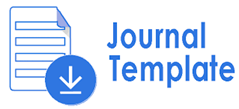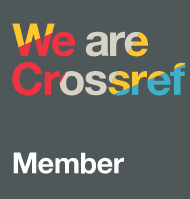Mind mapping: Improving learning outcomes, participation and student creativity in science lessons at SDN 03 Kanigoro
Abstract
Keywords
Full Text:
PDFReferences
Agustiana, I. G. A. T., Agustini, R., Ibrahim, M., & Tika, I. N. (2020). Efektivitas Model OPPEMEI untuk Meningkatkan Kemampuan Berpikir Kreatif Mahasiswa. Journal of Education Technology, 4(2), 150– 160. https://doi.org/10.23887/jet.v4i2.25343
Astuti, R., & Aziz, T. (2019). Integrasi Pengembangan Kreativitas Anak Usia Dini di TK Kanisius Sorowajan. Jurnal Obsesi : Jurnal Pendidikan Anak Usia Dini, 3(2), 294. https://doi.org/10.31004/obsesi.v3i2.99
Fiska Arifiana Salma, D. (2024). Analisis Peningkatan Hasil Belajar Siswa Sekolah Dasar Melalui Penerapan Mind Mapping. Jurnal Ilmiah Multidisiplin, 1(6), 48–53.
Fitri Barokah, D. M. (2021). Analisis terhadap Partisipasi Belajar Siswa pada Mata Pelajaran Sejarah Kebudayaan Islam di MTsN 2 Garut. Journal Riset Pendidikan Agama Islam, 1(1), 15–20. https://doi.org/10.29313/jrpai.v1i1.39
Heni. (2024). Pengaruh Metode Mind Mapping Terhadap Hasil Belajar Siswa Materi Sistem Sirkulasi Darah di Kelas XI MAN 3 Jember. ORYZA: Jurnal Pendidikan Biologi, 13(1), 137–145. https://doi.org/10.33627/oz.v13i1.1522
Karlina, F. A. (2019). Efektivitas Model Pembelajaran Kooperatif Tipe Snowball Throwing Terhadap Hasil Belajar Matematika Siswa. Jurnal Cahaya Pendidikan, 5(1), 47–55. https://doi.org/10.33373/chypend.v9i2.5971
Kustiani, N. G. (2021). Penggunaan Metode Mind Mapping Dalam Meningkatkan Hasil Belajar Siswa. ACADEMIA : Jurnal Inovasi Riset Akademik, 1(1), 30–37.
Lamsari, L. S. (2019). Peningkatan Konsentrasi Belajar Mahasiswa Melalui Pemanfaatan Evaluasi Pembelajaran Quizizz Pada Mata Kuliah Kimia Fisika I. Jurnal Dinamika Pendidikan, 12(1), 29–39.
Lizana, A. & Musdi, E. (2022). Pengaruh Model Pembelajaran Kooperatif Tipe Mind Mapping Terhadap Hasil Belajar Matematika Peserta didik Kelas IX di SMP Negeri 17 Kerinci. Jurnal Edukasi Dan Penelitian Matematika, 11(3), 6–10.
Mashitoh, N. L. D., Sukestiyarno, Y., & Wardono, W. (2021). Creative Thinking Ability Based on Self Efficacy on an Independent Learning Through Google Classroom Support. Journal of Primary Education, 10(1), 79–88.
Munawati, S. (2022). Monograf: Aplikasi Pembelajaran Pendidikan Agama Islam Melalui Metode Mind Mapping. Cirebon: Penerbit Insania.
Nita Mei Ekawati, D. K. (2020). Pengaruh Metode Pembelajaran Mind Mapping terhadap Hasil Belajar Siswa Kelas V Sekolah Dasar Negeri 2 Sumberrejo. Jurnal Pendidikan Dasar Indonesia, 5(2), 31–35.
Nyoman, N., & Wati, K. (2021). Dampak Model Pembelajaran Mind Mapping dalam Meningkatkan Hasil Belajar Siswa di Sekolah Dasar. Journal of Education Action Research, 5(4), 440–446.
Rambe, A. (2021). Implementasi Model Students Teams Achievement Division (STAD) Untuk Meningkatkan Hasil Belajar dan Aktivitas Belajar Siswa. Attanwir : Jurnal Keislaman Dan Pendidikan, 12(151–62). https://doi.org/10.53915/jurnalkeislamandanpendidikan.v12i1.47
Ritonga, S. F., & Rambe, R. N. (2024). Pengaruh Metode Mind Mapping terhadap Keterampilan Menyimak Cerita Fiksi Siswa di Sekolah Dasar Pendahuluan. Didaktika: Jurnal Kependidikan, 13(3), 3345–3352.
Rofisian, N. (2020). Penerapan Model Pembelajaran Mind Mapping Untuk Meningkatkan Keaktifan Siswa Kelas IV SD. El-Midad; Jurnal PGMI, 12(2), 102–114. http://journal.uinmataram.ac.id/index.php/elmidad
Sarumaha, M. (2023). Pengaruh Model Pembelajaran Mind Mapping Terhadap Hasil Belajar Siswa Kelas VIII Pada Mata Pelajaran IPA Biologidi SMP Negeri 2 Amandraya. TUNAS: Jurnal Pendidikan Biologi, 4(2), 14–28. https://jurnal.uniraya.ac.id/index.php/Tunas
Setiawan, L., & , Naniek Sulistya Wardani, T. I. P. (2021). Peningkatan Kreativitas Siswa Pada Pembelajaran Tematik Menggunakan Pendekatan Project Based Learning. Jurnal Basicedu, 5(4), 1879–1887. https://doi.org/10.31004/basicedu.v5i4.1068
Sumarjono. (2020). Peningkatan Partisipasi Belajar Siswa Kelas X SMAN 1 Balai Riam Menggunakan Model Number Head Together Pada Pembelajaran Sosiologi. Meretas : Jurnal Ilmu Pendidikan, 07(1), 115–123.
Suryo Hartanto, Yelsi Novianti, Y. G. (2023). Efektifitas Penggunaan Lembar Kerja Peserta Didik Liveworksheet Terhadap Hasil Belajar Matematika Siswa MTS. JCP (Jurnal Cahaya Pendidikan), 9(1), 183–191. https://doi.org/10.33373/chypend.v9i2.5971
Valian. (2023). Pengaruh Metode Mind Mapping Terhadap Hasil Belajar IPS Pada Siswa Kelas V Di SDN 1 Batujai. Jurnal Ilmiah Widya Pustaka Pendidikan, 11(1), 25–31.
DOI: https://doi.org/10.33373/chypend.v10i2.7035
Refbacks
- There are currently no refbacks.

This work is licensed under a Creative Commons Attribution-NonCommercial-ShareAlike 4.0 International License.
Copyright (c) 2018 Universitas Riau Kepulauan

Ciptaan disebarluaskan di bawah Lisensi Creative Commons Atribusi 4.0 Internasional.















